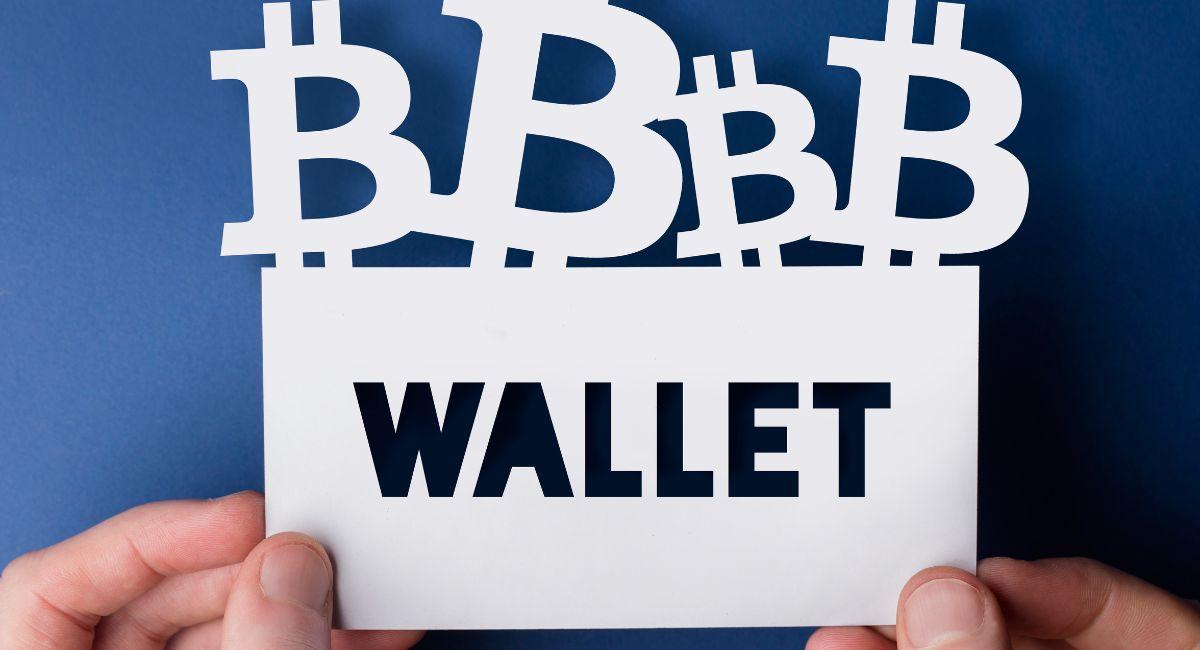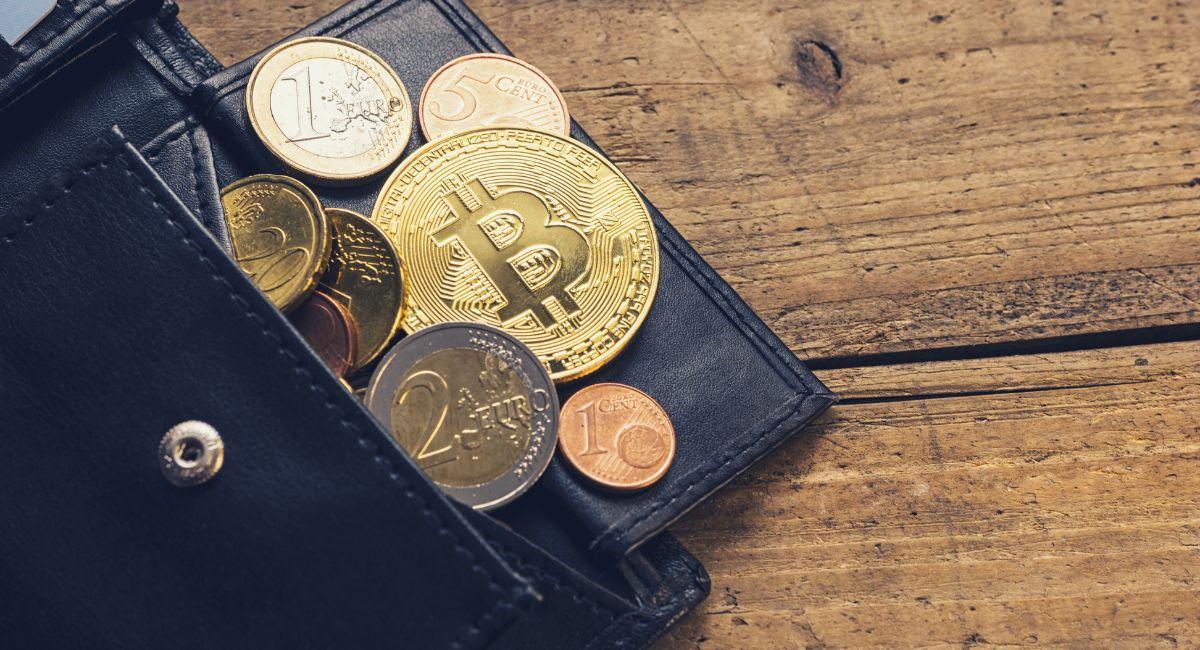All About The Intriguing World Of Blockchain Wallet As We Reach The End Of Financial Year 2023
A blockchain wallet is a digital tool used to store, manage, and interact with cryptocurrencies securely on a blockchain network. Unlike traditional wallets, which hold physical currency, blockchain wallets store cryptographic keys known as private keys that grant access to specific addresses on the blockchain. These wallets come in various forms, including software wallets, hardware wallets, and paper wallets, each offering different levels of security and convenience.
Software wallets are applications or programs that run on computers or mobile devices, allowing users to manage their cryptocurrency holdings through a user-friendly interface. Examples of software wallets include mobile wallets like Trust Wallet and desktop wallets like Exodus. While software wallets are convenient and accessible, they are susceptible to hacking and malware attacks, making security practices such as using strong passwords and enabling two-factor authentication essential for safeguarding funds.
Hardware wallets are physical devices specifically designed to store cryptocurrency private keys offline, offering a higher level of security compared to software wallets. Popular hardware wallets include Ledger Nano S and Trezor. By keeping private keys offline, hardware wallets protect against online threats like hacking and phishing attacks, making them ideal for long-term storage of large cryptocurrency holdings.
Paper wallets are another form of cold storage that involves printing out cryptocurrency private keys and addresses on paper. While paper wallets provide an offline storage solution, they require careful handling and protection from physical damage, loss, or theft.
Blockchain wallets enable users to send and receive cryptocurrencies, monitor transaction history, and manage multiple cryptocurrency assets from a single interface. Additionally, some blockchain wallets support features like decentralized exchanges (DEXs) for trading cryptocurrencies directly within the wallet, as well as integration with decentralized finance (DeFi) platforms for lending, borrowing, and earning interest on cryptocurrency holdings.
Overall, blockchain wallets play a crucial role in the cryptocurrency ecosystem by providing users with secure and convenient storage solutions for their digital assets. Whether using software wallets for day-to-day transactions, hardware wallets for long-term storage, or paper wallets for added security, choosing the right blockchain wallet depends on individual preferences, security requirements, and level of technical expertise.
Also, read- Venom Blockchain Surpasses One Million Registered Wallets in Record Time
Acquiring a New Blockchain Wallet: A Comprehensive Guide

The world of cryptocurrency necessitates a secure and reliable method for storing your digital assets. This is where blockchain wallets come in, acting as digital vaults for your crypto holdings. However, with a plethora of options available, navigating the process of acquiring a new blockchain wallet can be overwhelming. Fear not, for this guide will delve into the details, equipping you with the knowledge to make an informed decision and secure your crypto journey.
Understanding Your Options:
Before diving in, it’s crucial to understand the different types of blockchain wallets available, each with its own set of advantages and considerations:
- Software Wallets: These are free, user-friendly apps downloadable on your smartphone or computer. They offer convenient access to your crypto but are generally considered less secure compared to other options. Popular examples include MetaMask, Exodus, and Trust Wallet.
- Hardware Wallets: These are physical devices resembling USB drives that store your crypto offline, significantly enhancing security. They come at a cost but provide peace of mind for those holding substantial amounts of cryptocurrency. Leading brands include Ledger and Trezor.
- Paper Wallets: These are essentially physical representations of your crypto private keys printed on paper. While offering offline storage, they are prone to damage and loss, making them a less practical choice for most users.
Choosing the Right Wallet:
Once you understand the types, consider these factors when selecting a wallet:
- Security: Prioritize security, especially if you plan to store significant amounts of cryptocurrency. Hardware wallets generally offer the highest level of security.
- Ease of Use: If you’re new to crypto, prioritize user-friendly interfaces and mobile compatibility offered by software wallets.
- Supported Cryptocurrencies: Ensure the wallet supports the specific cryptocurrencies you intend to use.
- Reputation: Opt for wallets from reputable providers with a strong track record in security and user experience.
Acquiring Your Chosen Wallet:
Here’s a breakdown of the acquisition process for each type:
Software Wallets:
- Research and choose a reputable wallet provider.
- Download the app from the official app store or website (avoid third-party app stores).
- Create an account by providing basic information and setting a strong password.
- Secure your account with two-factor authentication (2FA) for added protection.
Hardware Wallets:
- Purchase your hardware wallet directly from the manufacturer’s website to avoid counterfeits.
- Download and install the accompanying software on your device.
- Follow the on-screen instructions to initialize your hardware wallet, which typically involves setting a PIN and creating a recovery phrase.
- Store your recovery phrase securely, as it’s crucial for recovering your crypto in case of device loss.
Paper Wallets:
- Use a reputable online tool or service to generate a paper wallet.
- Ensure you’re offline while generating the keys.
- Print the private and public keys on high-quality paper.
- Store the paper wallet in a secure and dry location.
Additional Security Measures:
- Always use strong and unique passwords for your wallet.
- Enable 2FA wherever available.
- Be cautious of phishing scams and never share your private keys with anyone.
- Regularly back up your wallet data or recovery phrase.
By following these steps and considering the crucial factors, you can confidently acquire a new blockchain wallet and embark on your cryptocurrency journey with peace of mind. Remember, conducting your own research and staying informed is paramount in the ever-evolving world of blockchain technology.
10 Reasons Why Blockchain Wallets are Important:

- Security: Blockchain wallets offer a higher level of security compared to traditional online wallets. This is because they leverage the decentralized nature of blockchain technology, making them less vulnerable to hacking attempts. Private keys, essential for accessing your cryptocurrency, are stored securely on the user’s device and not on a centralized server, minimizing the risk of theft.
- Control and Ownership: Unlike traditional wallets where the institution holds your funds, with blockchain wallets, you have complete ownership and control over your private keys and, consequently, your cryptocurrency. This grants you complete autonomy over your digital assets and eliminates the reliance on third-party institutions.
- Transparency and Immutability: Blockchain transactions are transparent and immutable, meaning they are publicly viewable and cannot be altered once recorded on the blockchain. This fosters trust and accountability in financial transactions and provides a tamper-proof record of ownership.
- Accessibility: Blockchain wallets can be accessed from anywhere in the world with an internet connection, making them convenient and accessible for global users. This eliminates geographical limitations associated with traditional financial institutions.
- Lower transaction fees: Compared to traditional financial institutions, transaction fees for sending and receiving cryptocurrency can be significantly lower with blockchain wallets. This is because there are no intermediaries involved, and the fees go directly to network validators.
- Increased Privacy: While blockchain transactions are transparent, user identities can remain anonymous, depending on the type of blockchain wallet used. This can be beneficial for users who value privacy in their financial transactions.
- Support for Multiple Cryptocurrencies: Many blockchain wallets allow you to store, send, and receive various cryptocurrencies in a single platform, offering greater convenience and flexibility in managing your digital asset portfolio.
- Potential for future applications: Blockchain wallets are not just limited to storing and managing cryptocurrency. They have the potential to integrate with other blockchain-based applications in the future, offering possibilities for new functionalities and services.
- Improved financial inclusion: Blockchain wallets offer a potential solution for the unbanked population to access financial services and participate in the global economy. This can contribute to financial inclusion and empowerment for individuals who lack access to traditional financial institutions.
- Evolving technology: Blockchain wallet technology is constantly evolving and improving, offering enhanced security features, increased functionality, and greater user experience as the technology matures.
What does “The Blockchain Built for Business” mean?
— Vet 🏴☠️ (@Vet_X0) March 1, 2024
Unlike other blockchains the XRP Ledger already has many desired features included in the Ledger pre built, you can’t build 100 different DEXs, AMMs, NFT/Token mint contracts, because we agree on a single implementation and… pic.twitter.com/MKGMmIptO8
Top 10 Blockchain wallet of 2023

Ledger Nano S Plus: A hardware wallet known for its robust security features and user-friendly interface. It supports a wide range of cryptocurrencies and allows users to manage multiple wallets on one device.
Trezor Model T: Another popular hardware wallet offering high-level security and a touchscreen interface for ease of use. It supports a vast array of cryptocurrencies and integrates with various DeFi platform
Exodus: A software wallet known for its user-friendly interface and built-in exchange functionality. It supports a wide range of cryptocurrencies and offers features like staking and portfolio tracking.
MetaMask: A popular software wallet extension for web browsers, widely used for interacting with decentralized applications (dApps) on the Ethereum blockchain. It also supports various other blockchains and integrates with several hardware wallets.
Coinbase Wallet: A software wallet offered by the popular cryptocurrency exchange Coinbase. It is a good option for beginners due to its ease of use and integration with the Coinbase exchange platform.
Trust Wallet: A mobile software wallet developed by Binance, another prominent cryptocurrency exchange. It supports a wide range of cryptocurrencies and tokens and allows users to interact with various dApps.
Electrum: A free and open-source software wallet known for its security features and customization options. It is a good choice for experienced users who value advanced control over their private keys.
Atomic Wallet: A software wallet offering a user-friendly interface and built-in atomic swaps for exchanging cryptocurrencies directly within the wallet. It supports a vast number of cryptocurrencies and tokens.
Guarda Wallet: A multi-currency platform offering various wallet solutions, including web, mobile, and desktop versions. It supports a wide range of cryptocurrencies and tokens and integrates with various DeFi platforms.
ZenGo: A mobile software wallet known for its focus on security and ease of use. It features biometric authentication and a user-friendly interface, making it a good option for beginners.
Conclusion
In conclusion, blockchain wallets serve as essential tools in the cryptocurrency ecosystem, providing users with secure and convenient storage solutions for their digital assets. Whether through software wallets, hardware wallets, or paper wallets, blockchain wallets offer varying degrees of security, accessibility, and functionality to meet the diverse needs of cryptocurrency users.
Software wallets, accessible through computers or mobile devices, offer convenience and ease of use but are vulnerable to online threats. Hardware wallets, on the other hand, provide a higher level of security by storing private keys offline, protecting against hacking and malware attacks. While hardware wallets require an upfront investment, they offer peace of mind for long-term storage of significant cryptocurrency holdings.
Paper wallets, although less commonly used today, provide an additional layer of security by storing private keys offline on physical paper. However, they require careful handling and protection from physical damage, loss, or theft.
Beyond storage, blockchain wallets enable users to send and receive cryptocurrencies, monitor transaction history, and manage multiple cryptocurrency assets from a single interface. Some wallets also offer advanced features such as decentralized exchanges (DEXs) for trading cryptocurrencies directly within the wallet and integration with decentralized finance (DeFi) platforms for earning interest and participating in lending and borrowing activities.
As the cryptocurrency market continues to evolve and mature, blockchain wallets will play an increasingly crucial role in facilitating the adoption and usability of digital assets. With ongoing advancements in security, usability, and functionality, blockchain wallets will continue to empower users to securely manage and transact with cryptocurrencies, contributing to the growth and mainstream acceptance of blockchain technology and decentralized finance. Therefore, selecting the appropriate blockchain wallet tailored to individual preferences, security requirements, and technical expertise is essential for navigating the dynamic landscape of the cryptocurrency ecosystem.
Stay informed with daily updates from Blockchain Magazine on Google News. Click here to follow us and mark as favorite: [Blockchain Magazine on Google News].
Get Blockchain Insights In Inbox
Stay ahead of the curve with expert analysis and market updates.
latest from tech
Disclaimer: Any post shared by a third-party agency are sponsored and Blockchain Magazine has no views on any such posts. The views and opinions expressed in this post are those of the clients and do not necessarily reflect the official policy or position of Blockchain Magazine. The information provided in this post is for informational purposes only and should not be considered as financial, investment, or professional advice. Blockchain Magazine does not endorse or promote any specific products, services, or companies mentioned in this posts. Readers are encouraged to conduct their own research and consult with a qualified professional before making any financial decisions. The featured image used is just a creative depiction of the title and it does not intend to hurt sentiments of any person or institution. If it hurts anyone sentiments, please do not hesitate to reach out to Blockchain Magazine.

 Bitcoin
Bitcoin  Ethereum
Ethereum  XRP
XRP  Tether
Tether  Solana
Solana  Dogecoin
Dogecoin  USDC
USDC  Cardano
Cardano  Lido Staked Ether
Lido Staked Ether  TRON
TRON  Chainlink
Chainlink  Avalanche
Avalanche  Wrapped stETH
Wrapped stETH  Wrapped Bitcoin
Wrapped Bitcoin  Sui
Sui  Toncoin
Toncoin  Stellar
Stellar  Hedera
Hedera  Shiba Inu
Shiba Inu  WETH
WETH  Polkadot
Polkadot  LEO Token
LEO Token  Bitget Token
Bitget Token  Bitcoin Cash
Bitcoin Cash  Litecoin
Litecoin  Hyperliquid
Hyperliquid  Uniswap
Uniswap  Official Trump
Official Trump  USDS
USDS  Wrapped eETH
Wrapped eETH  Pepe
Pepe  NEAR Protocol
NEAR Protocol  Ethena USDe
Ethena USDe  Aave
Aave  Aptos
Aptos  Internet Computer
Internet Computer  WhiteBIT Coin
WhiteBIT Coin  Monero
Monero  Ethereum Classic
Ethereum Classic  Ondo
Ondo  Mantle
Mantle  POL (ex-MATIC)
POL (ex-MATIC)  Cronos
Cronos  Render
Render  Dai
Dai  MANTRA
MANTRA  Algorand
Algorand 




